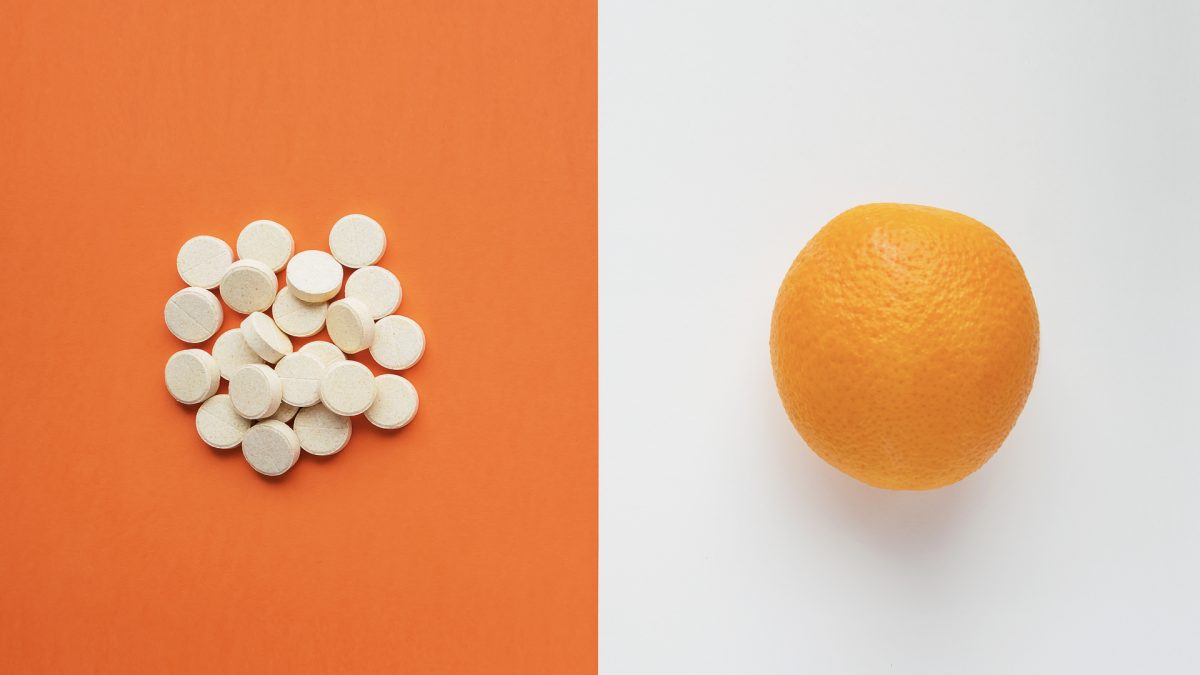Vitamin C “is no stranger to controversy, as evidenced by the fact that over 40 years lapsed” from the time citrus fruits were shown to cure scurvy in the 1700s and the widespread implementation of eating citrus to save lives. Is it possible we’re in the midst of a similar 40-year lag with research in the mid-1970s purporting to show that terminal cancer patients treated with vitamin C lived 4 times longer and sometimes 20 times longer? I explore this in my video Vitamin C Supplements for Terminal Cancer Patients.
Researchers at the venerable Mayo Clinic decided to put vitamin C to the test, and they failed to show any benefit. The survival curves for both groups of patients were essentially identical. In fact, the one success story, a man with end-stage pancreatic cancer who had shown no response to any previous attempts at chemotherapy but started improving and was still alive five years later, was one of the patients who got the sugar pill placebos. It was official: Vitamin C didn’t work. “The apparently positive results reported…almost certainly resulted” from systematic bias in terms of which historic controls were chosen to compare with the treatment group, read the accompanying National Cancer Institute editorial.
Linus Pauling disagreed, arguing that the prior chemotherapy in nearly all the Mayo Clinic study patients may have negated the effect of the vitamin C. If the vitamin C works by boosting your immune system but your immune system is first destroyed by chemo, the thinking goes, no wonder it didn’t work. In the original vitamin C study that showed remarkable benefit, only 4 out of the 100 patients had ever received chemo. The Mayo Clinic researchers were skeptical, but “Pauling had a legendary reputation for being right about all sorts of things,” so “one might perhaps do worse than rely at least partly on Pauling’s awesome intuition.” Thus, a second, randomized, double-blind, placebo-controlled study was performed on patients with advanced cancer, but, this time, those who had no prior chemotherapy.
Again, it was a spectacular failure.
Researchers found no measurable response. The cancer in the vitamin C group progressed just as rapidly, and the patients on the placebo sugar pills lived just as long. In fact, if anything, the sugar pill group lived longer. At two years, everyone in the vitamin C group had died, but there were still a few survivors in the placebo group who lived at least past three years. The researchers concluded that “high-dose vitamin C therapy is not effective against advanced malignant disease, regardless of whether the patient has had any prior chemotherapy.”
Because the Mayo studies were taken as definitive, the medical community concluded that vitamin C was useless. However, in the Mayo Clinic studies, they gave the vitamin C orally in supplements, not intravenously. In retrospect, the route of administration may have been key.
In the original study, Pauling and his researchers started out infusing 10 grams of vitamin C a day intravenously, whereas in both of the Mayo studies designed to replicate the protocol, the researchers just gave people vitamin C supplements to take orally. Patients were sent home to swallow 20 capsules a day. They got the same dose, but 10 grams given orally is not the same thing as 10 grams given intravenously. They can’t be blamed for their ignorance, though. This fact wasn’t discovered until decades later.
It turns out vitamin C concentration in our bloodstream is tightly controlled, such that if you try to swallow more than you’d get eating five servings of fruits and vegetables, your body cuts down on the absorption in the intestine. For example, if you go from eating 200 mg to eating about ten times more (2,500 mg), the level in your bloodstream only goes up 3 mg per liter or quart of blood. “In contrast, because intravenous injection bypasses the intestinal absorption system,” it can result in super high blood concentrations—as in 100 to 200 times the level you can achieve taking vitamin C orally. Maybe that explains why the original studies seemed so promising but the follow-up studies were so disappointing. This raises the controversial question of the re-evaluation of vitamin C in cancer treatment. Researchers responded to the challenge and took up the mantle, and I discuss this in my video The Role of Vitamin C in the Treatment of Terminal Cancer.
To learn more about the history of vitamin C and cancer, see Intravenous Vitamin C for Terminal Cancer Patients.
To learn more about vitamin C, see Do Vitamin C Supplements Prevent Colds But Cause Kidney Stones? and What Is the Optimal Vitamin C Intake?.
Can eating citrus protect against cancer? Find out in Citrus Peels and Cancer: Zest for Life?.
In health,
Michael Greger, M.D.
PS: If you haven’t yet, you can subscribe to my free videos here and watch my live, year-in-review presentations:
- 2012: Uprooting the Leading Causes of Death
- 2013: More Than an Apple a Day
- 2014: From Table to Able: Combating Disabling Diseases with Food
- 2015: Food as Medicine: Preventing and Treating the Most Dreaded Diseases with Diet
- 2016: How Not To Die: The Role of Diet in Preventing, Arresting, and Reversing Our Top 15 Killers
